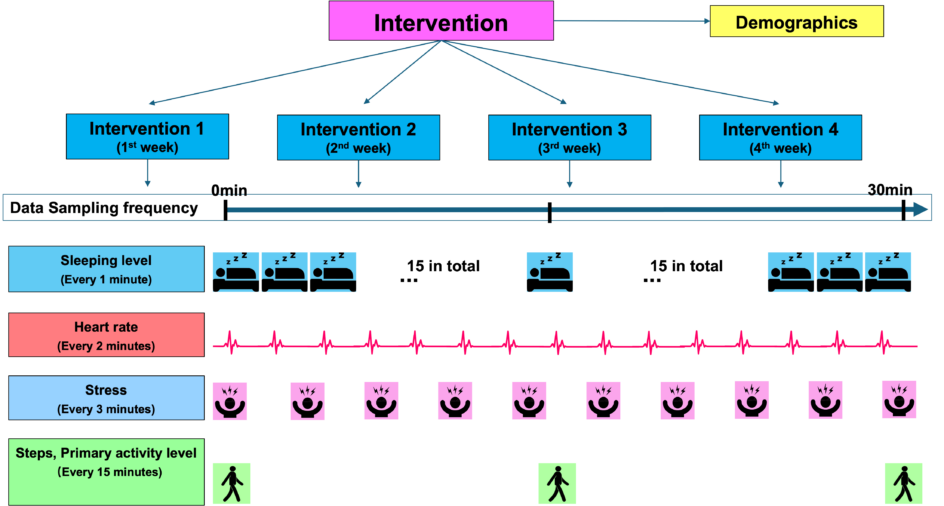Smart Health Research to Reduce Cancer Risks

Can a smart ring help reduce health disparities and lower cancer rates in the U.S.? Researchers at UC Irvine believe so, as they work to harness the power of artificial intelligence in analyzing mobile health data to track and reduce risk factors.
“We were recently awarded a four-year grant for our smart health research on sleep, stress, wellbeing and cancer prevention using data from a wearable device,” says Annie Qu, Chancellor’s Professor of Statistics in the Donald Bren School of Information and Computer Sciences (ICS).
The $1.2M National Institute of Health (NIH) grant, Individualized Learning and Prediction for Heterogeneous Multimodal Data from Wearable Devices, is a collaboration between Qu and her ICS colleagues, Babak Shahbaba and Padhraic Smyth, and Yuqing Guo of the UCI School of Nursing. The grant was awarded through the NIH National Cancer Institute Division of Cancer Control & Population Sciences.
“Interestingly, this proposal originally had nothing to do with cancer,” says Qu. The initial research focus was on using wearable devices, such as the Oura smart ring, to track social determinants of health (SDoH) impacting health disparities among women, such as sleep, heart rate, heart rate variability, blood pressure, stress and physical activity.
“Because we focused on risk factors that can contribute to various health outcomes, including cancer, [NIH] considered it as very relevant research,” explains Shahbaba. “We had planned on tracking these potential risk factors, but they connected the dots by saying, ‘if you can track these, then hopefully you can do some interventions to reduce the risk of cancer.’”
Building a Smart Health Framework
The team is now working on a framework for not only analyzing individual health data to offer accurate predictions, but also for understanding how interventions might lower a person’s chances of developing cancer. Creating this framework will involve addressing common challenges faced when analyzing large volumes of mobile health data gathered over long time periods, including challenges related to irregular data collection, multi-resolution data features, and subject heterogeneity.
“Cancer doesn’t just occur in one day; it can build over a very long period,” explains Qu. “And poor management of your health, high levels of stress, and also genetics can be contributing factors. Hopefully, our study will offer successful measures for prevention.”
This will involve developing new statistical machine learning models, such as deep learning, and novel data integration techniques for multi-resolution mobile health data. Such data is easier than ever to capture, with an abundance of new health applications and wearable devices, but deep learning’s adoption in real-world healthcare settings has been slow. It remains difficult to analyze high volumes of irregular, multi-resolution health data collected from diverse subjects with varying behaviors and treatment responses. The team aims to address this by developing deep learning models capable of understanding and predicting individual health over time as well as for identifying shared patterns across groups.

Addressing Health Disparities
“An important focus of this research is health disparities,” says Shahbaba. “So we will also examine whether these risk factors are disproportionately affecting minority populations. There’s some evidence of it, but with our rich data, we can track and evaluate that information much better.”
Leveraging the convenience of digital health applications, the team will design interventions to help women reduce stress, increase physical activity, maintain healthy glucose levels, and improve sleep patterns during critical periods of their lives — in particular, when pregnant or when acting as a caregiver for a dementia patient (often a parent or spouse). The team will also look at women who have Type 2 diabetes, which has been linked to higher rates of certain cancers.
Crucially, the team’s innovative methodology will provide a foundation for developing culturally sensitive interventions designed to reduce health disparities in the U.S.
“It’s exciting,” says Qu. “We can do a lot in terms of developing machine learning and statistics methodology to gain new insights from this heterogeneous wearable device data.”
U.S. Representative Katie Porter is also excited, as she noted in a letter to Qu, congratulating her on receiving this ambitious NIH grant. “Visionaries like yourself are the backbone of our district and what makes Orange County so special…. I am beyond excited to see what you accomplish with this opportunity!”
— Shani Murray